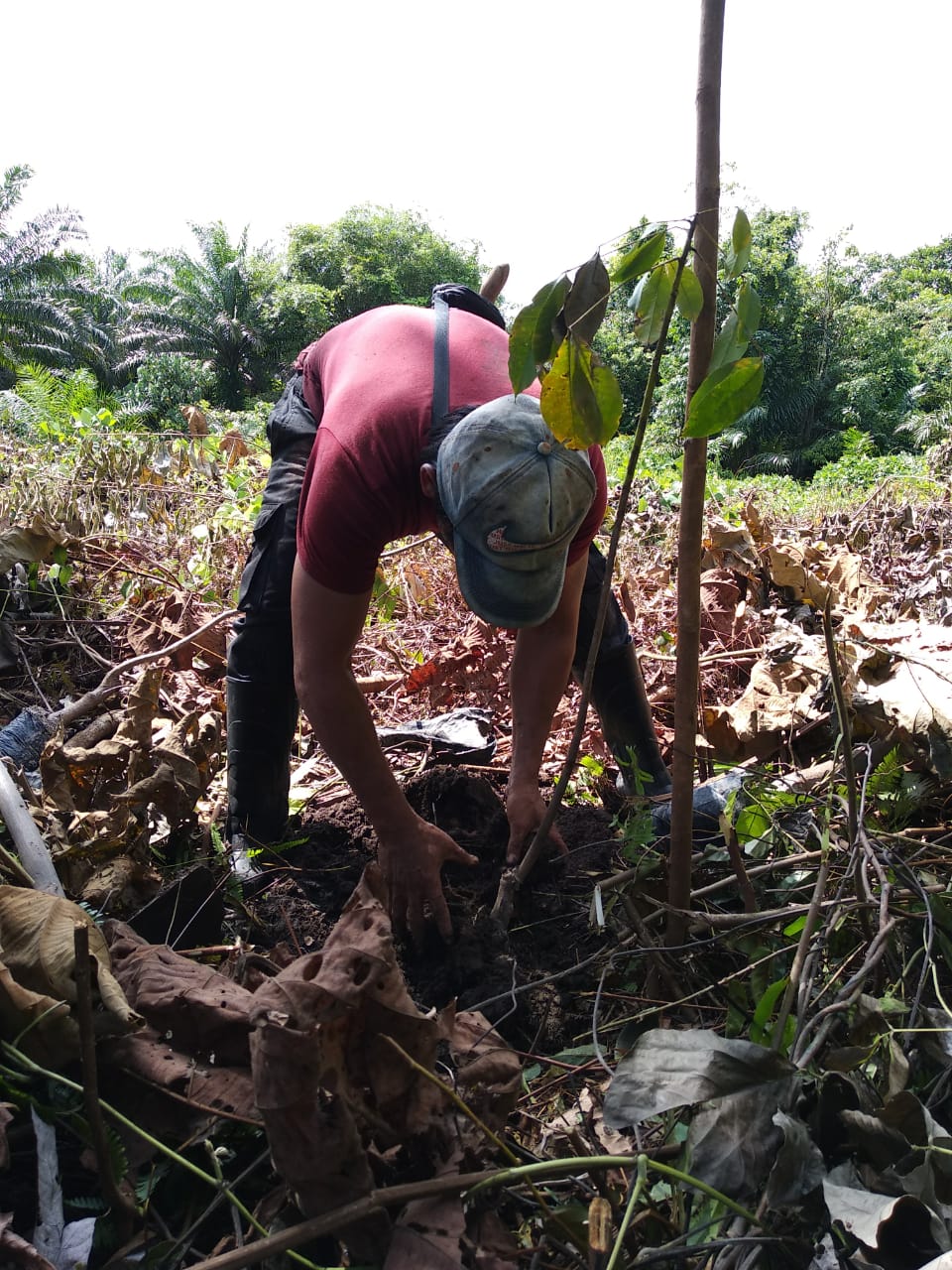We are working with villages on the border of the Lamandau Wildlife Reserve (Indonesian Borneo) to improve livelihoods and local forest sustainability. In this area, fire is used to cleared land and to hunt wild pig and deer. Forests have been cleared to mine for minerals or to grow oil palm. We see the damage this does to forests, the vanishing habitat of orangutans and other critically endangered species.
Measuring out and survey of agroforestry demonstration plot (oil-palm plantation in the background).
As demand for land increases it is imperative to adopt sustainable livelihoods that don’t require forests to be cleared. Agroforestry has been practised traditionally in Indonesia for many centuries and it can improve farmer’s livelihoods and improve land, which is already degraded. It is a farming system that combines planting trees with agricultural crops to increase profits, both economically and environmentally.
Discussions with land owners and Sukamara KPHP about planting sengon plants in community-owned gardens
The villages we work with have voluntarily offered one hectare (roughly the size of a football pitch) of their land to be used as a demonstration plot and Orangutan Foundation are assisting with the preparation and planting of seedlings and will help to monitor their progress.
Farmers nurturing sengon seedlings for planting out.
Two of the species being grown are rubber trees (Hevea brasiliensis) used for harvesting latex and sengon or albazia (Falcataria moluccana) which is used for local timber products (firewood, matchsticks, construction materials). They are fast growing species and so can be harvested in a relatively short time and they are adaptable to varying climate conditions.
Transporting compost to plant out seedlings
Planting out of sengon seedlings
Planting rubber in the demonstraion plot








